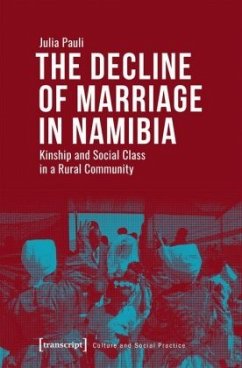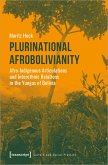In Southern Africa, marriage used to be widespread and common. However, over the past decades marriage rates have declined significantly. Julia Pauli explores the meaning of marriage when only few marry. Although marriage rates have dropped sharply, the value of weddings and marriages has not. To marry has become an indicator of upper-class status that less affluent people aspire to. Using the appropriation of marriage by a rural Namibian elite as a case study, the book tells the entwined stories of class formation and marriage decline in post-apartheid Namibia.
»It is an intricate analysis of how transformations in Namibian marriage practices have been framed and structured by dramatic political and economic changes in the twentieth century, and thus how the vantage point ofmarriage is a productive tool from which to study how personal experiences reflect larger social shifts.« Rachel Spronk, African Studies Review, 63/4 (2020) »With its balanced discussion of the regional literature the monograph is a good read for social scientists doing research in the Southern African region and of value to anyone researching gender and family relations. In addition, it is an inspiration for anyone interested in class relationsin Africa.« Astrid Bochow, Anthropos, 115 (2020) »This is a rich and valuable study, offering a nuanced and historically sensitive approach to an important question.« Meredith McKittrick, H-Net-Reviews, 6 (2020) »This monograph provides a superb ethnography and a fruitful resource for understanding most of the core issues that revolve around marriage and the lack thereof in a Namibian community. It has much value as an anthropological study that indicates how new consumption patterns affect 'traditional institutions'.« Stephanie Rudwick, Modern Africa, 7/2 (2019) Besprochen in: Africa Spectrum, 55/1 (2020), Lena Kroeker Journal of Namibian Studies, 28 (2020), Henning Melber


